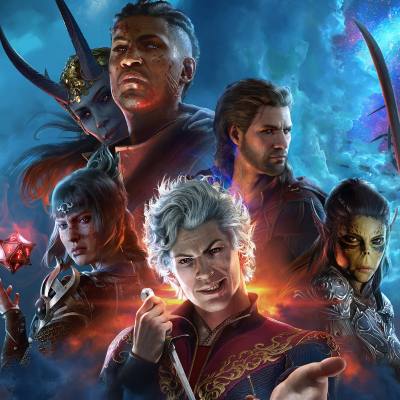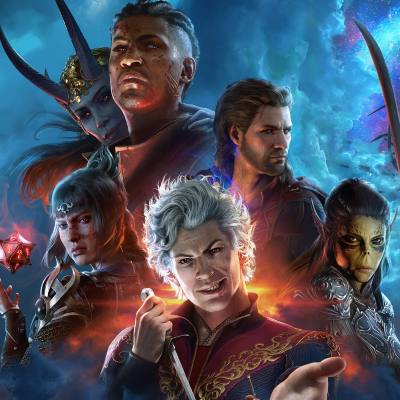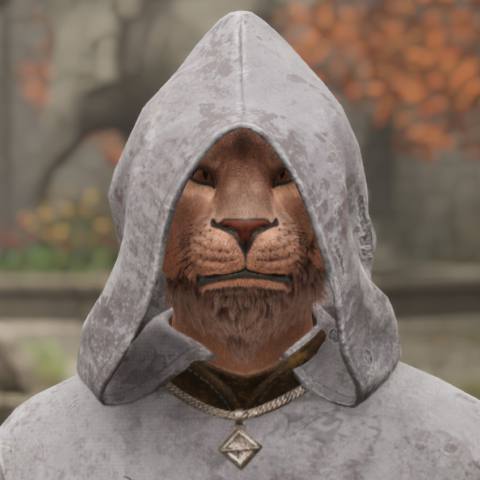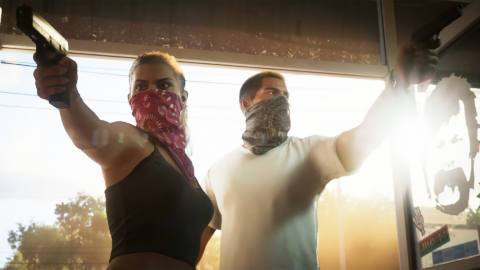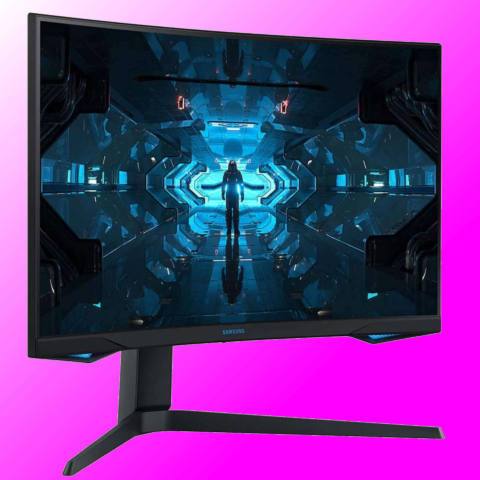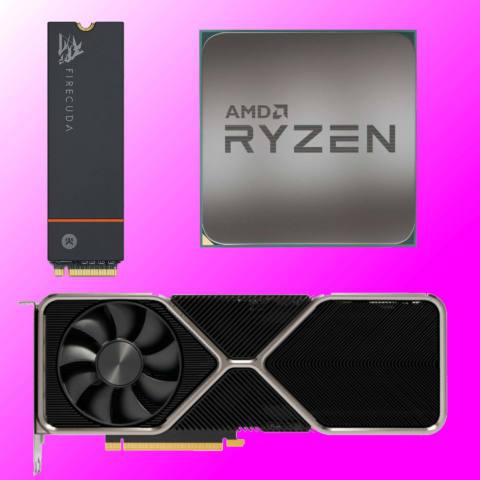Let’s face it: In the average MOBA, support mains draw the short straw. The first leg of the game is dedicated to farming but, ah, you should probably let your carry worry about that. They need all the money. Don’t buy any of those shiny, powerful items, just the cheapest utility gear and a few wards for you.. Oh yeah, and don’t steal kills, don’t let your carry get ganked, and if they manage to wander into another time zone and get killed for being mindlessly out of position, it’s your fault.
Playing hard support in League of Legends or Dota is like carefully guiding four toddlers through a construction site. The social dynamics are putrid, and I’m pretty sure it’s a Terms of Use violation for babies to be here anyway. So for the 13-ish years I’ve played MOBAs, I’ve consistently avoided support like the plague. Until a certain neutron star-slash-college professor changed everything.
Dynamo is built different. Dynamo does it all. He leads from the front, single-handedly ends team fights with the click of a button, and racks up a hoard of wealth with a healing aura in one hand and a headshot dispenser in the other. Deadlock’s systems enable Dynamo (and the game’s other supports, perhaps to a lesser extent) to explore new heights of agency in a genre that typically serves selfless team players bland action and relative bankruptcy.
This town is big enough for all six of us
With its still nascent meta, Deadlock’s roles are a bit more elastic than Dota’s gold priority positions and League’s rigid lane-by-lane setup, so I should note what I mean when I say support. Where a bruiser or carry might focus on farming the entire game to buy high-power items necessary to excel in their role, a support focuses more on healing items, utility, and initiation tools. While any character can buy a bunch of attack power and become a carry of sorts, supports leverage a kit which doesn’t depend on these items to be powerful. The way Deadlock approaches farming and itemization are crucial in making Dynamo such a, well, dynamo.
In the early minutes of a match, souls are duplicated between lane partners, and later in the game they’re shared. Not only can a support character help their carry farm and deny creeps, finally participating in a dimension of the game they normally miss out on, they also get rewarded for it with income comparable to that of their teammates. And because items are split into different categories with caps on each one until later in the game, you’re not only free to—but expected—to dip into some powerful items which boost your mobility, grant extra damage on headshots, and so on.
And crucially, you’ll never have to be the only adult in the room buying wards for a witless team; there are no wards to be bought! The game’s long sightlines, over-the-shoulder camera and vertical map are ill-suited to Dota and League’s vision ward system, so there’s no extra gold sink weighing down the support player as an assumed burden.

This might all sound like Deadlock’s supports play an awful lot like carries, and they kind of do. But these sea changes never inhibit your ability to play a supportive role or force you to take the lead—rather, they allow you to participate in those parts of the game that are usually reserved for the guy willing to drop a “mid or feed” some five seconds after the draft pick starts.
Hot for teacher
Dynamo embodies that marriage of support and carry playstyles. His suite of abilities read pure support: he’s got a knockup which sends enemies gormlessly into the air, he can teleport an ally to safety, and he can stow away his gun to heal in an area of effect around him. His ultimate is unsurprisingly the focal point of his kit, spawning a huge black hole which pulls nearby enemies into his orbit, rendering them bunched up and vulnerable to devastating combos. If you’re familiar with Overwatch’s Zarya or Dota 2’s Enigma, you know an ability like this is a pillar of chronically clippable, tournament-winning wombo combos.
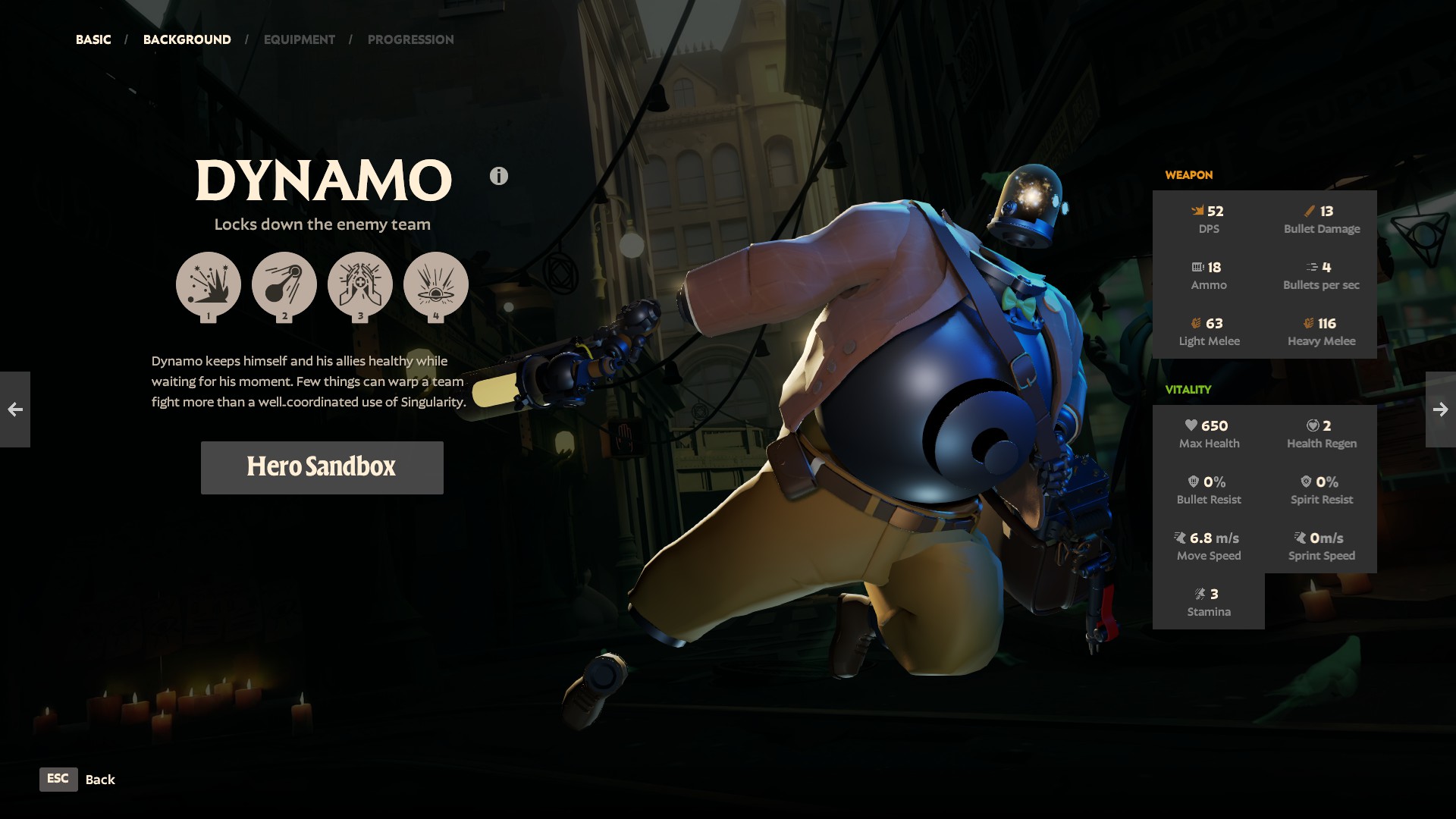
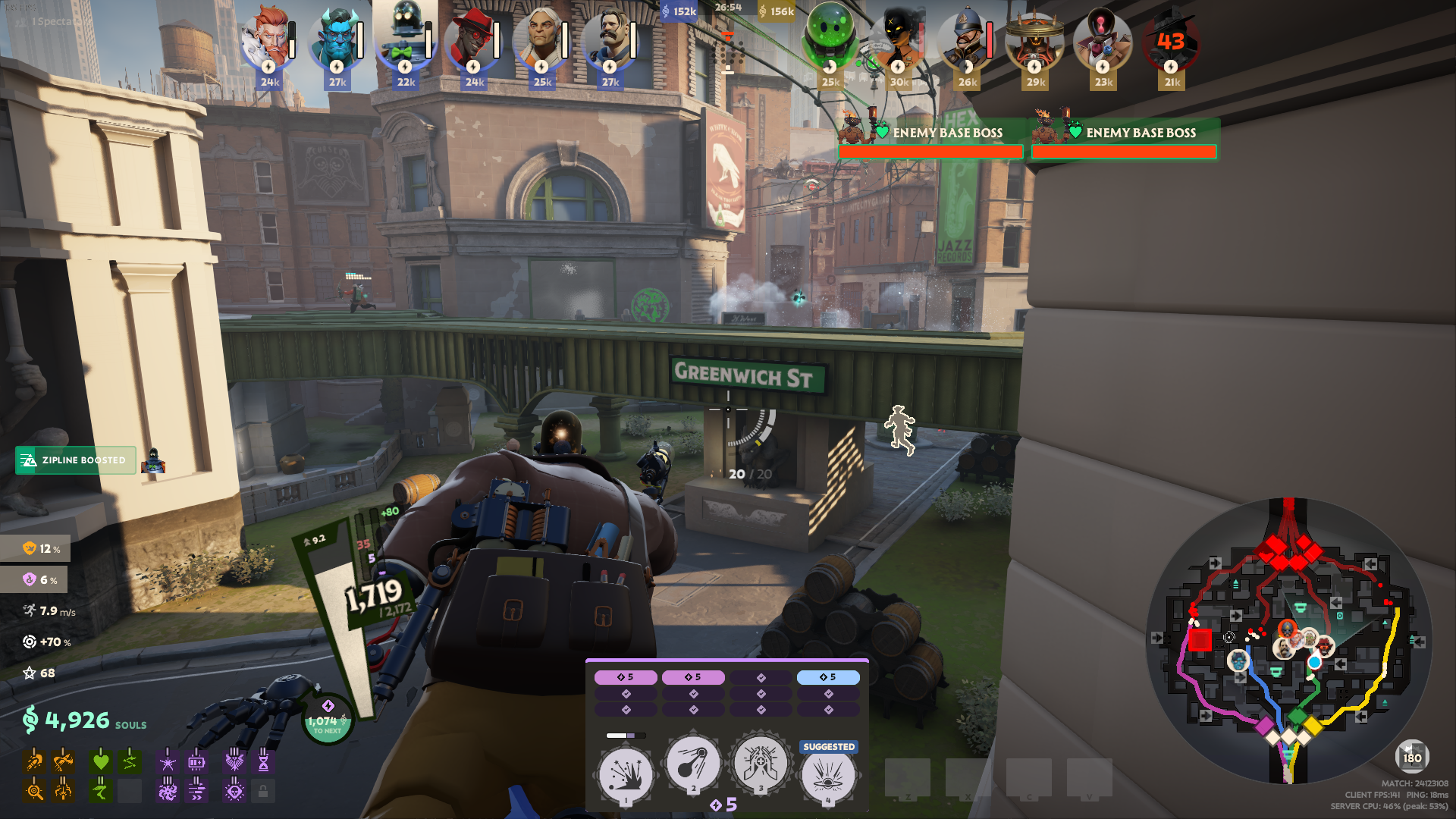
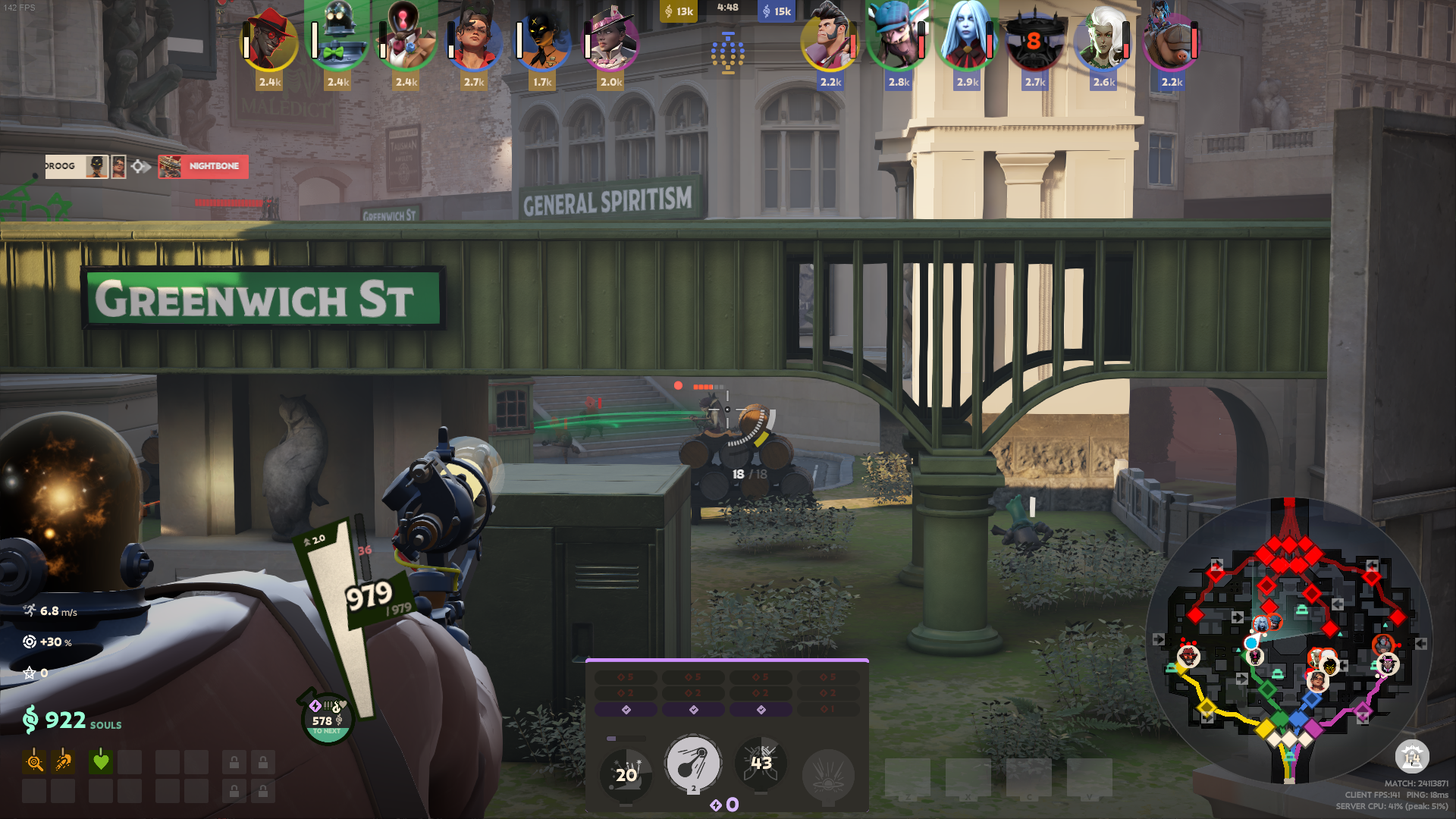
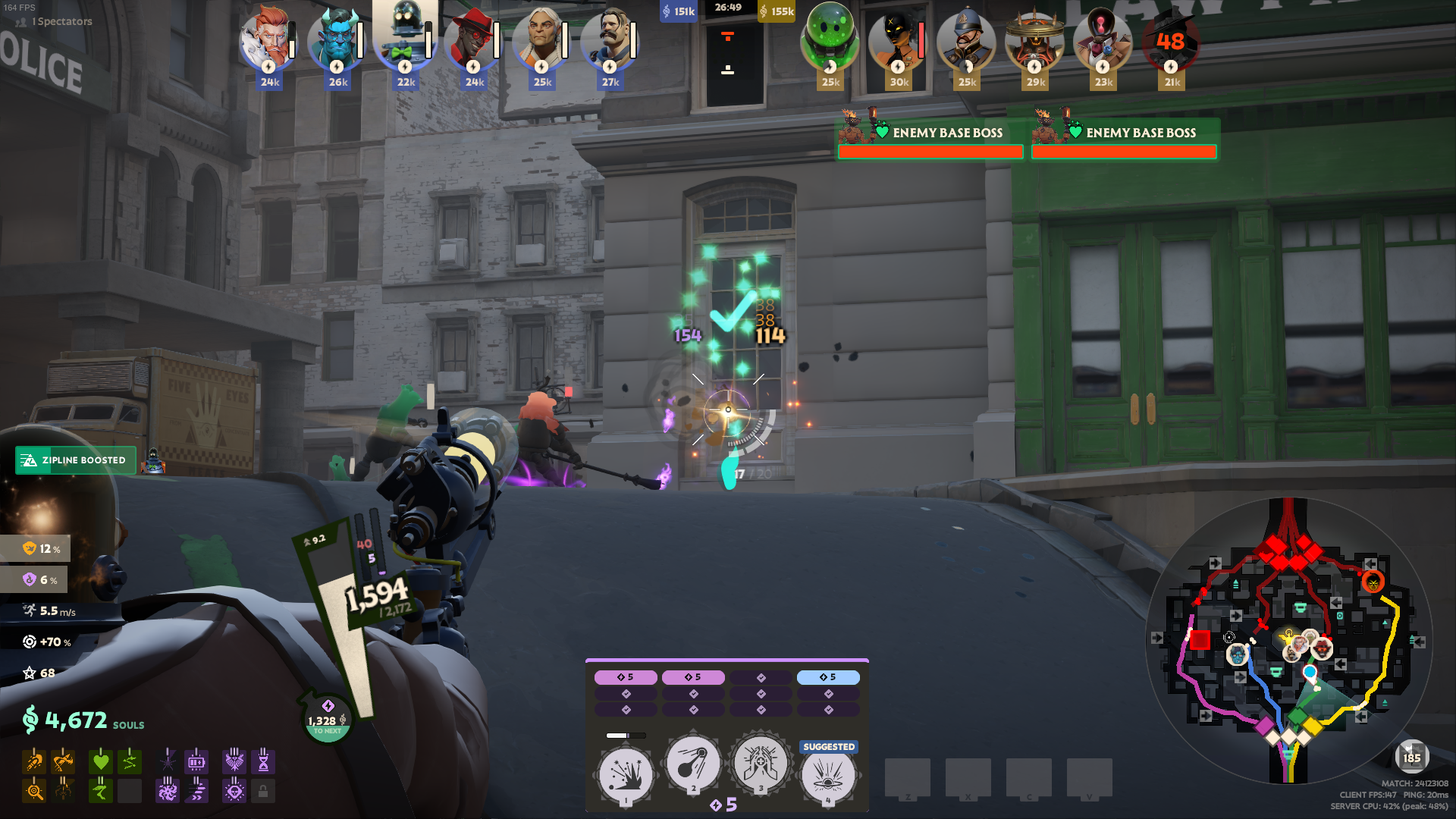
But upon closer inspection Dynamo is less teammate-dependent than you might imagine. That knockup can be upgraded to shred enemy bullet resistance. The teleport reloads your gun and provides a fire rate boost to yourself and whatever ally you take along. His heal, when fully upgraded, returns use of your gun while channeling, and his gun is a pretty threatening automatic pistol that can melt enemy heroes with the right items.
At any point in the game past the first few minutes, these strengths (in tandem with Deadlock’s generous income mechanics and different item categorizations) allow Dynamo to shift rapidly from carry to support to hybrid, go all-in on a headshotting facemelter build, or swear fealty to the nearest killstreaking Pocket, committing fully to healing items and initiation tools. It’s the first time in a MOBA I consistently explore every corner of the item shop, looking for how I might tailor my chosen character to the situation, rather than just find the biggest damage stick and weld it to my auto-attack for a higher kill-bad-guy number.
I think all of Deadlock’s utility-minded characters—Kelvin, Ivy, Viscous, and so on—boast build variety and high impact in a similar capacity to Dynamo. But he hits that sweet spot so thoroughly that he pulled me away from my favorite role in this genre and changed how I approach buildcraft in these games. This single character has me eagerly anticipating Deadlock’s future support heroes, curious how they might further bend genre conventions beyond their standard pliability.

